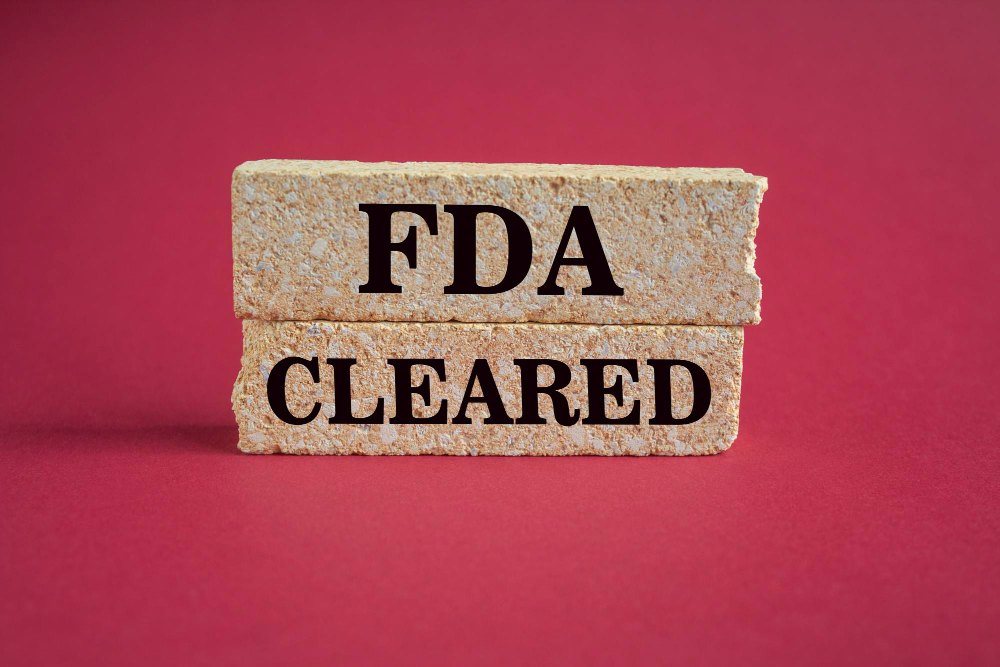Have you been hearing about the latest breakthrough in anti-aging supplements? Today, we’re diving deep into liposomal nicotinamide riboside, a cutting-edge form of vitamin B3 that’s revolutionizing how we approach cellular health and aging. This comprehensive guide will help you understand why this supplement is gaining so much attention in the health and wellness community.
Understanding Nicotinamide Riboside Basics
Chemical Structure and Properties
Nicotinamide riboside (NR) is a unique form of vitamin B3 that serves as a direct precursor to NAD+ (nicotinamide adenine dinucleotide), a crucial molecule involved in hundreds of metabolic processes in your body. When delivered in liposomal form, nicotinamide riboside becomes more bioavailable, meaning your body can utilize it more effectively. This enhanced absorption is what makes liposomal nicotinamide riboside particularly interesting for those seeking to optimize their NAD+ levels.
Natural Sources and Production Methods
While nicotinamide riboside is naturally present in trace amounts in milk and brewer’s yeast, the concentrations are too low to achieve therapeutic effects. That’s why supplemental forms, particularly liposomal nicotinamide riboside, have become increasingly popular. The production process involves carefully combining pure nicotinamide riboside with phospholipids to create a protective liposomal barrier.

The Science Behind Liposomal Delivery Technology
How Liposomal Technology Enhances Absorption
Liposomal technology represents a significant advancement in supplement delivery. When nicotinamide riboside is encapsulated within liposomes (tiny phospholipid bubbles), it’s protected from degradation in the digestive system. This protection allows more of the active compound to reach your cells intact, potentially making liposomal nicotinamide riboside more effective than traditional supplement forms.
Benefits of Liposomal Form vs. Standard Supplements
The advantages of liposomal delivery extend beyond just protection. The phospholipid structure of liposomes is similar to your cell membranes, allowing for easier absorption and cellular uptake. This enhanced bioavailability means you might need a lower dose to achieve the same benefits compared to standard nicotinamide riboside supplements.
Different Forms of Nicotinamide and Their Comparisons
Nicotinamide Riboside vs. NMN
One of the most common questions in the NAD+ boosting world is about nicotinamide riboside vs NMN (nicotinamide mononucleotide). Both compounds serve as NAD+ precursors, but they work through slightly different pathways. Research suggests that nicotinamide riboside might have an advantage in terms of stability and cellular uptake, though both compounds show promise in supporting NAD+ levels.
Comparing Niacin, Niacinamide, and Nicotinamide Riboside
When exploring vitamin B3 supplements, you’ll encounter several forms. Nicotinamide riboside vs niacin and nicotinamide riboside vs niacinamide comparisons reveal important differences. While all forms can contribute to NAD+ production, nicotinamide riboside appears to be more direct and efficient. Unlike niacin, it doesn’t cause the uncomfortable “flush” effect, and compared to niacinamide, it may have unique advantages in cellular energy production.
Understanding Nicotinamide Riboside Hydrogen Malate
Nicotinamide riboside hydrogen malate represents another formulation in the market. This form combines NR with malic acid, which some manufacturers claim may enhance stability and absorption. However, current research primarily focuses on standard and liposomal nicotinamide riboside forms.
Health Benefits and Scientific Research
Anti-aging Properties
Recent research into liposomal nicotinamide riboside has shown promising results in supporting healthy aging at the cellular level. By boosting NAD+ levels, this supplement may help maintain the function of sirtuins, proteins that play crucial roles in longevity pathways. Studies suggest that maintaining optimal NAD+ levels through supplementation with liposomal nicotinamide riboside could help support various aspects of healthy aging, including metabolic function and DNA repair processes.
Cellular Energy Production
One of the most significant benefits of liposomal nicotinamide riboside supplementation is its role in cellular energy production. As we age, our natural NAD+ levels decline, potentially affecting our cells’ ability to produce energy efficiently. By supplementing with liposomal nicotinamide riboside, you may help support your body’s natural energy production processes, particularly in high-energy-demanding tissues like muscles and the brain.
Cognitive Function Support
Research indicates that liposomal nicotinamide riboside may support brain health through multiple mechanisms. By helping maintain healthy NAD+ levels in neural tissues, this supplement could play a role in supporting cognitive function and neuroplasticity. Scientists are particularly interested in how liposomal nicotinamide riboside might help maintain brain health during aging.
Synergistic Combinations
Nicotinamide Riboside with Resveratrol
The combination of nicotinamide riboside resveratrol has gained significant attention in the anti-aging field. Resveratrol, a compound found in red wine and berries, appears to work synergistically with nicotinamide riboside by activating similar cellular pathways. When taken together, these compounds may offer enhanced benefits for cellular health and longevity compared to either supplement alone.
Other Beneficial Supplement Combinations
Beyond resveratrol, researchers have explored various combinations to enhance the effects of nicotinamide riboside. Some studies suggest that combining liposomal nicotinamide riboside with other NAD+ pathway supporters or antioxidants might provide additional benefits. However, it’s important to note that more research is needed to fully understand these synergistic effects.
Choosing the Right Supplement
Available Forms (Powder vs. Capsules)
When selecting a supplement, you’ll find various options, including nicotinamide riboside powder and capsule forms. While nicotinamide riboside powder offers flexibility in dosing, capsules provide convenience and precise dosing. The liposomal delivery system can be incorporated into either form, though capsules are currently more common in the market.
Quality Indicators
To ensure you’re getting a high-quality product, look for supplements that:
- Have third-party testing certification
- Provide clear information about the source and purity of ingredients
- Use stabilized forms to prevent degradation
- Include detailed information about the liposomal delivery system
- Maintain proper storage and handling practices
Top Products in the Market
While specific brand recommendations aren’t appropriate, quality nicotinamide riboside supplements should demonstrate:
- Transparent manufacturing processes
- Clear labeling of active ingredients
- Proper stability testing
- Use of pharmaceutical-grade ingredients
- Implementation of quality control measures
- Evidence of bioavailability testing
Dosage and Administration
Recommended Daily Intake
Understanding the proper dosage of liposomal nicotinamide riboside is crucial for achieving optimal results. Clinical studies have typically used doses ranging from 250mg to 1000mg per day, though individual needs may vary. The enhanced absorption offered by liposomal nicotinamide riboside means you might achieve beneficial effects at lower doses compared to standard forms. However, it’s essential to start with a lower dose and gradually increase it while monitoring your body’s response.
Best Time to Take
The timing of your liposomal nicotinamide riboside supplementation can impact its effectiveness. Many experts recommend taking it in the morning on an empty stomach to maximize absorption, though some people prefer splitting their dose throughout the day. The liposomal delivery system helps protect the compound from stomach acid, making it more flexible in terms of timing compared to conventional supplements.
Potential Interactions
When incorporating liposomal nicotinamide riboside into your supplement regimen, it’s important to consider potential interactions with other supplements and medications. While generally well-tolerated, timing your doses away from other supplements, particularly other NAD+ precursors, may help optimize absorption and effectiveness.
Safety Profile and Side Effects
Known Side Effects
Most people tolerate liposomal nicotinamide riboside well, with minimal side effects reported in clinical studies. However, some individuals might experience mild digestive discomfort or changes in energy levels when first starting supplementation. These effects typically resolve as your body adjusts to the supplement. The liposomal delivery system may help reduce the likelihood of digestive issues compared to standard forms.
Contraindications
As with any supplement, certain populations should exercise caution when considering liposomal nicotinamide riboside supplementation. Pregnant or nursing women, individuals with certain medical conditions, and those taking specific medications should consult healthcare providers before starting supplementation. This personalized approach ensures safety and appropriateness for your individual situation.

Target Demographics
Age Groups
While people of all ages might benefit from nicotinamide riboside supplementation, certain age groups may find it particularly relevant. Adults over 40 often show the most interest, as natural NAD+ levels typically decline with age. Younger adults engaged in intensive physical training or experiencing high stress levels might also consider supplementation to support their body’s energy production and recovery processes.
Health Conditions
Research suggests that liposomal nicotinamide riboside may be particularly beneficial for individuals with specific health concerns related to metabolism, energy production, or aging processes. Those experiencing fatigue, metabolic challenges, or cognitive changes might find this supplement especially relevant to their health goals.
Lifestyle Factors
Your lifestyle can significantly impact how you might benefit from nicotinamide riboside supplementation. Athletes and highly active individuals may find it supports their recovery and energy levels, while those with demanding cognitive workloads might appreciate its potential benefits for mental clarity and focus. The enhanced bioavailability of the liposomal form makes it particularly suitable for those with busy lifestyles who want to maximize their supplement’s effectiveness.
Cost Considerations and Value Analysis
Price Comparison
Understanding the investment in liposomal nicotinamide riboside requires considering both immediate costs and long-term value. While the liposomal form typically commands a higher price point than standard supplements, its enhanced absorption may provide better value through increased effectiveness. When evaluating the cost, consider that higher bioavailability often means you might need less product to achieve desired results, potentially offsetting the initial price difference.
Quality vs. Cost
The market for liposomal nicotinamide riboside supplements spans a wide price range, reflecting variations in quality, production methods, and formulation technology. Premium products often incorporate advanced liposomal delivery systems and higher-grade ingredients, which contribute to their cost. When comparing options, consider that investing in a high-quality product may provide better results and greater peace of mind regarding purity and effectiveness.
Long-term Investment Perspective
Viewing liposomal nicotinamide riboside supplementation as a long-term investment in your health can help frame the cost consideration appropriately. Regular supplementation may provide cumulative benefits, particularly for aging support and cellular health maintenance. The stability and effectiveness of liposomal delivery systems often justify the additional cost for those committed to long-term supplementation.
Market Analysis and Product Trends
Current Market Status
The market for liposomal nicotinamide riboside continues to evolve as research advances and consumer awareness grows. We’re seeing increased sophistication in formulation technologies and a trend toward more transparent manufacturing practices. The emergence of various delivery forms and combination products reflects growing market maturity and consumer demand for more effective supplementation options.
Future Projections
Industry analysts predict continued growth in the NAD+ booster market, with liposomal nicotinamide riboside playing a significant role. Ongoing research into aging and cellular health may further expand potential applications. As production technologies advance, we might see more innovative delivery systems and potentially more accessible price points.
Frequently Asked Questions (FAQs)
Q: How does liposomal nicotinamide riboside differ from regular NR supplements?
A: The liposomal form encapsulates the compound in phospholipid bubbles, potentially increasing absorption and bioavailability compared to standard supplements.
Q: Can I take nicotinamide riboside with other supplements?
A: Yes, but it’s best to space out doses of different supplements. Pay particular attention when combining with other NAD+ precursors or B vitamins.
Q: How long does it take to see results?
A: Individual experiences vary, but many people report noticing changes in energy levels within 2-4 weeks of consistent supplementation. Long-term benefits may develop over several months.
Conclusion
Key Takeaways
After examining the research and current market trends, it’s clear that liposomal nicotinamide riboside represents an important advancement in NAD+ precursor supplementation. The enhanced bioavailability offered by liposomal delivery makes it a compelling option for those seeking to optimize their cellular health and aging support regimen. While more research is still emerging, current evidence suggests promising applications across various aspects of health and wellness.
Final Recommendations
When considering liposomal nicotinamide riboside supplementation, take a thoughtful approach to product selection and usage. Prioritize quality and consistency over immediate cost savings, and work with healthcare providers to develop an appropriate supplementation strategy. Monitor your response to supplementation and adjust as needed, keeping in mind that individual results may vary. Remember that supplementation works best as part of a comprehensive approach to health, including proper nutrition, regular exercise, and adequate sleep.



